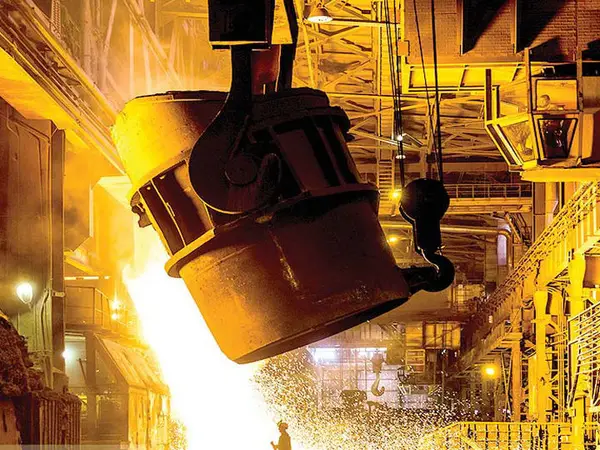Iranian steel industry officials say that several countries have shifted their orders to Russia, as Moscow offers lower prices, endangering Iran’s revenues.
Speaking with Sharq newspaper in Tehran, Reza Shahrestani, a member of Iran’s steel producers’ associationsaid that Iran’s steel exports have stopped in the past two months as China, Afghanistan, Thailand and South Korea, Iran’s biggest customers have shifted their orders to Russia. He emphasized that this development has deprived Iran of more than $5 billion in steel exports so far.
Shahrestani warned the same scenario is being repeated in case of other metals and could also endanger petrochemical exports, which provide larger export revenues.
Iranian media and analysts have voiced concern in recent weeks that following international sanctions against Moscow, Russian oil has become cheaper and specially China will be enticed to buy crude from Russia instead of Iran.
Despite United States sanctions on oil exports, Tehran has been able to boost crude shipments since the Biden Administration began nuclear talks with Tehran and less enforcement of Trump-era restrictions against third parties doing business with Iran.
Iranian officials have been taking credit for the increase in crude deliveries and revenues, although it is not clear how much foreign currency has found its way into Tehran’s coffers. Some say China is paying Iran with deliveries of merchandise and not cash, which would not be easy with US banking sanctions in place against Iran.
In the four years since former president Donald Trump withdrew from the 2015 nuclear agreement and imposed oil export sanctions, Iran has tried to compensate for loss of oil revenue by boosting non-crude exports of petrochemicals and steel. In the last 12 months, Iran’s non-oil exports have reached close to $50 billion.
Shahrestani told Sharq that Russia is offering discounts of 15-20 percent on its steel and already the impact on Iran’s traditional markets is clear. Russia is reportedly also offering a $20 per barrel discount on its crude, which on world markets has climbed above $110 a barrel.
Iran’s steel industry also faces internal hurdles according to Reza Mohtashamipur, an official in the ministry of industry and mines, who told state television last month that a 17-22 percent tax on steel exports hurts the industry. He argued that the tax makes Iranian steel less competitive on international markets. While Iran had offered 15 percent cheaper steel to foreign buyers, Russia is now offering more discounts.
Another impediment for steel producers, according to Shahrestani is lack of electricity in peak seasons. With the approach of hot summer months, electricity is usually rationed, and steel mills receive less energy, which impedes production.
Reduction in export revenues come at a sensitive time for Iran as it has stopped food import subsidies to save foreign currency, triggering a sudden jump in prices. Many analysts and former politicians have been warning of mass protests as millions of people face hunger. Already sporadic anti-government protests have been taking place in smaller cities and towns, but large cities have not erupted.
